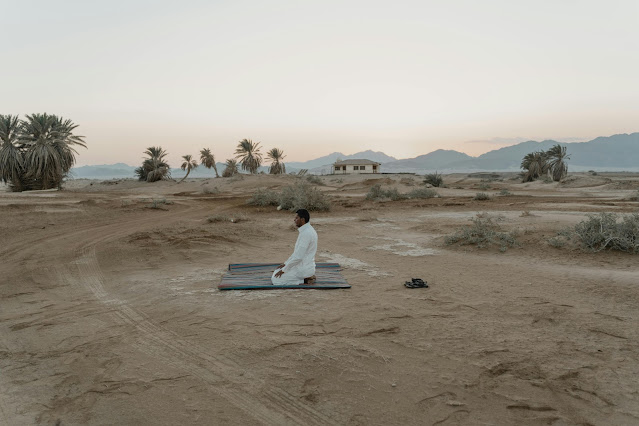The reality of life as a Muslim person is shaped by several key aspects: spiritual beliefs, practices, cultural influences, and personal experiences. While every individual's experience varies based on their personal circumstances, the foundation of a Muslim's life is rooted in Islam's core teachings. Here's an overview
1. Faith (Iman)
At the core of a Muslim's life is faith in Allah (God), the belief in His oneness (Tawhid), and the Prophethood of Muhammad (PBUH). Muslims believe that life is a test, and their purpose is to worship Allah and live in accordance with His guidance, as revealed in the Qur’an and the Hadith (teachings and sayings of the Prophet Muhammad).
This belief in the afterlife (Akhirah) also shapes how Muslims view their actions. Life is seen as a temporary journey, with the eternal life (Jannah or Jahannam—paradise or hell) being the ultimate destination, determined by one's deeds and faith.
2. Practices (Ibadah)
The Five Pillars of Islam form the framework of a Muslim's daily life:
- Shahada (Declaration of faith): Belief in the oneness of God and Muhammad as His final messenger.
- Salah (Prayer): Muslims pray five times a day, which serves as a direct connection with Allah and a reminder of their purpose.
- Zakat (Charity): A portion of wealth is given to the less fortunate, emphasizing social justice.
- Sawm (Fasting): During the month of Ramadan, Muslims fast from dawn to sunset, practicing self-discipline and empathy for those in need.
- Hajj (Pilgrimage): A once-in-a-lifetime journey to Mecca, required for those who are physically and financially able.
These practices bring structure and meaning to a Muslim's day-to-day life, reinforcing their connection with God and their community.
3. Ethics and Morality
Islam provides guidance on how Muslims should conduct themselves in various aspects of life—towards family, society, and oneself. Key values include:
- Justice and fairness: Muslims are encouraged to stand for justice, even if it goes against personal interests.
- Kindness and mercy: Showing compassion, especially towards the less fortunate, is highly emphasized.
- Modesty: This extends not only to dress but also to behavior and interactions.
- Respect for family: Family plays a central role, with an emphasis on caring for parents and raising children in accordance with Islamic values.
4. Community and Identity (Ummah)
Muslims are part of the Ummah, a global community that transcends national, ethnic, or cultural differences. This creates a sense of belonging and solidarity with fellow Muslims around the world, especially during times of shared religious practices like Ramadan or Hajj.
In addition to being part of a global Muslim community, local communities often form the backbone of social life. Mosques serve as centers not only for worship but also for social, educational, and charitable activities.
5. Balancing Faith with Modern Life
In the modern world, Muslims, like everyone else, face challenges in balancing their religious obligations with the demands of daily life—work, education, family, and society. Depending on where a Muslim lives (whether in a Muslim-majority country or as part of a minority), their experience can differ significantly.
- In some regions, Muslim identity is tightly woven into the fabric of daily life, with the cultural and societal norms aligned with Islamic teachings.
- In others, particularly in non-Muslim-majority countries, Muslims may face challenges related to integration, maintaining religious identity, or dealing with misconceptions or stereotypes about Islam.
Many Muslims strive to balance modernity with traditional values, finding ways to live out their faith while participating fully in contemporary society.
6. Personal Struggles and Spiritual Growth
Just like anyone else, Muslims face personal challenges—whether financial difficulties, health issues, or personal doubts. Islamic teachings emphasize patience (Sabr) and reliance on Allah in times of hardship. These struggles are seen as part of the test of life, meant to bring spiritual growth and deeper faith.
For many, the journey through life's ups and downs is marked by turning to God in prayer, seeking guidance through the Qur’an, and following the example of the Prophet Muhammad.
7. Diverse Experiences
It’s important to remember that the Muslim experience is not monolithic. There are over 1.9 billion Muslims globally, spread across various cultures, ethnicities, and languages. While Islamic teachings are universal, how they are interpreted and practiced can vary. Some Muslims might strictly adhere to religious practices, while others may take a more cultural or moderate approach. The personal, political, and social contexts of a Muslim’s life deeply affect their reality.
Conclusion
The reality of life as a Muslim person is centered on faith in Allah, adherence to Islamic practices, and striving to live an ethical and purposeful life. It involves balancing the spiritual with the material world, personal struggles, and maintaining a sense of community. It is a journey shaped by a strong sense of purpose and ultimate accountability in the afterlife. At its core, Islam encourages Muslims to live with humility, justice, and compassion towards others.

